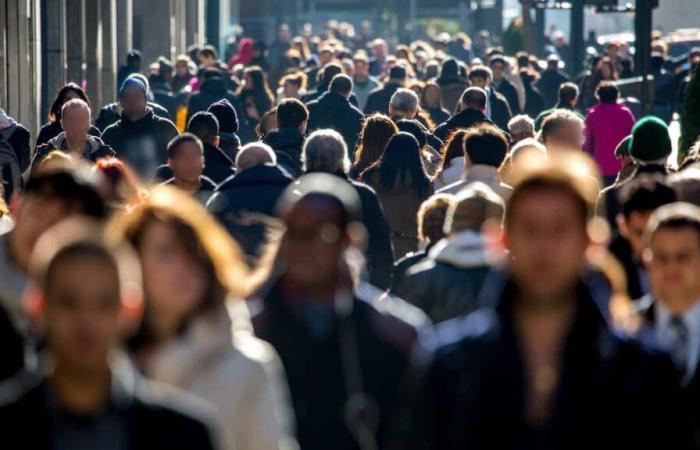
Exceeding 9.1 million inhabitants, Quebec’s population is experiencing its strongest growth in nearly 40 years.
According to a report from the Institute of Statistics of Quebec released Thursday, the majority of regions of Quebec have experienced their strongest demographic growth since 1986.
In Montreal, the population increased by 91,000 people: an increase of 4.2% which is almost twice as large as in the rest of Quebec (+2.3%).
However, 12 of the 17 regions record more deaths than births. “It’s no surprise. We have been expecting this breaking point for a long time due to the declining birth rate and the aging of the population,” comments Jacques Légaré, professor emeritus in the Department of Demography at the University of Montreal.
Jacques Légaré taught demography at the University of Montreal for around fifty years. Photo UdeM
UdeM
More immigrants to integrate
To compensate for the declining birth rate, Quebec has gradually increased its immigration thresholds. “A solution that works well provided that newcomers are well integrated, which is not always guaranteed,” continues the expert who has been interested in Quebec demography for half a century.
He deplores, in particular, the end of French courses in reception classes, due to lack of budget. The French language is one of the most important factors of integration into Quebec society, he maintains.
As for the effects of the reduction in the birth rate and the aging of the population, we are beginning to observe the effects in the villages where schools have to be closed for lack of students. We also have difficulty recruiting staff to work in residences for the elderly.
For an Institute of Demography
The scientific community has been calling for more than 20 years for an Institute of Demography that could support the Government of Quebec in population planning.
-In France, the National Institute of Demographic Studies has played this role since 1945. The French state can rely on convincing data on major demographic trends.
The report from the Institute of Statistics of Quebec in brief
More and more Quebecers
Almost all administrative regions of Quebec saw their population increase during the period studied, which extends from 1is July 2023 to 1is July 2024. The total population now stands at 9.1 million people.
Montreal champion; Quebec follows
Montreal displays, by far, the strongest growth of all regions with an increase of 4.2%. Quebec follows with a rate of 2.4%, a historic record for the Old Capital.
Increase in migrants
In each region, temporary immigration (temporary workers, foreign students and asylum seekers) contributed more strongly to population growth than permanent immigration.
More deaths than births
Deaths exceeded births in 12 of the 17 regions. The only regions where births still exceed deaths are Montreal, Outaouais, Laval, Montérégie and Nord-du-Québec.
Source:
statistique.quebec.ca/fr/communique/bilan-demographique-regions-quebec-croissance-acceleree-migrations-internationales
Do you have any information to share with us about this story?
Write to us at or call us directly at 1 800-63SCOOP.



